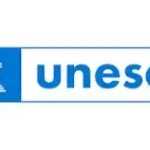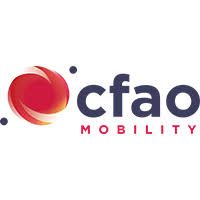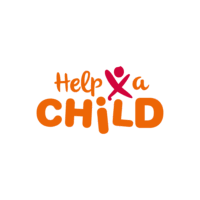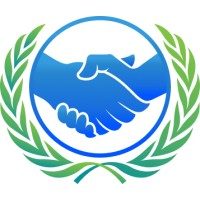For over three decades, countries across the globe mobilised resources to implement HIV programmes
to prevent new infections, treat and mitigate its socioeconomic impact. The 2024 UNAIDS1 data
indicates that 39.9 million people are living with HIV (PLHIV), out of which 20.8 million are in East and
Southern Africa. It is estimated that 44% of all new HIV infections were among women and girls in 2023.
While in all other geographical regions, over 73% of new HIV infections occurred among men and boys.
Women and girls in sub-Saharan Africa accounted for 62% of all new HIV infections. It is estimated that
42.5 million people have died as a result of AIDS. Due to treatment and comprehensive services
provided to PLHIV, the related deaths have been reduced by 69% since the peak in 2004 and by 51%
since 2010.
The UNAIDS 95-95-95 targets aim to end the AIDS epidemic by 2030, focusing on achieving 95% of
people living with HIV knowing their status, 95% of those diagnosed receiving treatment, and 95% of
those on treatment achieving viral suppression. In South Sudan, the UN Joint Team on HIV prioritises
reducing new infections by 25%, from 11,000 in 2022 to 8,000 in 2026. In addition, it aims to reduce
AIDS-related deaths from 7,500 in 2022 to 5,600 in 2026. Concerning progress made, the 2023 HIV
prevalence rate among 15-year-olds and above in South Sudan is estimated to be 1.5%. The rate is
lower than the 2020 estimates, which was at 2.5%. The progress made in reduction can be linked to
the combination of preventive measures, including testing and treating. In addition, increased access
to prevention information, addressing stigma and implementing policies.
South Sudan joined the Global HIV Prevention Coalition (GPC), established by UNAIDS and UNFPA. The
GPC aimsto support countries in reinvigorating and scaling up HIV prevention efforts to meet the global
commitment of reducing new HIV infections by 75% by 2025. The GPC has outlined a set of targets and
a strategic framework to guide countries in accelerating HIV prevention. These targets emphasise the
importance of scaling up combination prevention approaches, strengthening community-based
interventions, addressing structural barriers, and ensuring sustainable financing for HIV prevention.
Efforts geared to reducing HIV infections and their impact would require a robust media programme.
The national HIV policy and strategies have prioritised a strong HIV & AIDS focus on mass media
communication programmes to increase the comprehensive knowledge on HIV transmission and
prevention and reduction of related risky sexual, social and cultural behaviours among the general and
key populations. The outputs will include mass media campaign plans, media products, research and
social and behavioural change programmes. Media practitioners are important stakeholdersin shaping
public understanding of scientifically accurate HIV information. It is imperative to have an effective
media strategy and assets that can empower media partners to realise impactful results. The HIV
prevention can contribute to sustainable development goals (SDGs) especially (SDG1), hunger (SDG2),
health (SDG3), education (SDG4), gender equality (SDG5), clean water and sanitation (SDG 6), economic
1 https://www.unaids.org/sites/default/files/media_asset/UNAIDS_FactSheet_en.pdf
2
growth (SDG8), reduced inequalities (SDG10), peace, justice and strong institutions (SDG16), and
strengthened partnerships (SDG17).
The 2021 South Sudan National Audience Survey reported that radio was the media type most likely to
have been utilised followed by television then internet. The survey illustrates that 85% of the
respondents reported that radio was the primary and most trusted source of health information.
Drawing from the survey, reaching the majority of the population in the country with HIV information
requires capacitating the different media platforms. It also requires capacitating government
institutions such as the South Sudan HIV/AIDS Commission (SSAC) to develop strategies and guidelines
to contribute to HIV prevention and impact mitigation efforts. The SSAC has a role in coordinating and
facilitating the HIV response, including activities addressing HIV prevention.
Within the United Nations System, UNESCO convenes the education sector and media response to the
HIV epidemic within the Joint United Nations Programme on HIV/AIDS (UNAIDS) Division of Labour.
UNESCO will need the Consultant to provide usefulresources for professional objective and facts-based
reporting for media. The consultancy aims at creating a comprehensive media strategy and guide
focused on HIV awareness and education.
II. Objective
To develop and produce a comprehensive national HIV Media Strategy and a media guide aligned with
the updated global evidence, guidance, and HIV prevention frameworks for South Sudan.
III. Scope of Work
The Consultant will engage HIV programming stakeholders comprising UNESCO, UNFPA, WHO,
UNAIDS, SSAC, media groups, and civil societies. The Consultant will consider the feedback from the
stakeholders at the national and state levels. The Consultant will produce recommendations for
inclusion drawn from national policies and international documents. The Consultant will consider HIV
information, prevention, impact mitigation, services, creation of demand, special needs as well as HIV
in workplace and learning environments.
IV. Technical Supervision
The Consultant will work under the supervision of the Head of the Education Unit and closely with the
National Programme Officer. Consultation with SSAC will be required to approve content aligned with
national policies and strategies.
V. Expected Tasks
The Consultancy should involve desk review and extensive consultation. The process will ensure that
the strategy and tools align with evidence and best frameworks and borrow from best practices and
buy-in from the health and media stakeholders. The following deliverables
• Preparation of an inception report that provides the methodologies, timelines, risks, mitigation
measures, assumptions, expected results and milestones. The inception report will reflect the likely
relevant staff and stakeholders to be reached.
• Conduct in depth desk review.
• Consult relevant stakeholders at the national and state levels to source their inputs and provide
report.
• Draft the media strategy and media guide.
• Prepare an agenda and associated documentation for the stakeholder three-day validation and
consultation meeting.
• Submit media strategy and media guide,
• Prepare a final report on the Consultancy with clear information on methodology, challenges,
advertent and inadvertent results, lessons learned and recommendations.
3
• Submit a final report detailing the methodology used, activities undertaken, challenges, results
(planned and unplanned), lessons identified and recommendations on how to address those
lessons.
VI. Deliverables
The Consultant will submit the following:
• Inception report
• Report on the consultation
• Draft Media strategy and media guide,
• Agenda and associated documentation for a three-day Stakeholder Consultation
• Stakeholder Consultation Report
• Final draft of the Media strategy and media guide
• Final Report on Consultancy should show the methodology used, activities undertaken, successes,
challenges, results (planned and unplanned), lessons identified and recommendations on how to
address those lessons.
VII. Indicative Timeframe
Development of strategy, media guide Duration (days)
1. Inception Report 2
2. Review of the Literature 2
3. Consultations with key stakeholders: national and state level and
report
6
4. Development of the draft media strategy and guide 12
5. Engagement of stakeholders in validating (preparation and workshop)
and report
4
6. The final draft media strategy and guide 3
7. Final Report on Consultancy 1
8. Total number of days 30
VIII. Payment schedule
• 30% upon submission of inception report and agenda for meeting with stakeholders
• 40% upon submission of the plans for field engagement, draft Media strategy and guide, agenda
and associated documentation for a three-day stakeholder consultation, consultation report.
• 30% upon approval of the final Media strategy and close-out report on Consultancy.
IX. Required Skills and Experience
• Doctorate or Masters in Public Health, Media and Mass Communication or other related fields
• Professional and work experience in HIV prevention and control, media, in programme evaluation,
impact assessment and strategic recommendations for continued support/development of
programming/strategies, including strong reporting skills
4
• We seek a candidate with at least five years of experience in drafting impactful policy and strategy
documents.
• Experience in conducting stakeholder consultations and engagements
• Strong interpersonal, analytical and conceptual skills
• Excellent written English.
X. Knowledge and Skills
• Demonstrated knowledge and skills in stakeholder participation techniques
• Demonstrated knowledge and skills in the facilitation of workshops
• Demonstrated analytical and research skills in the field of policy development and
implementation/management
• Strong communication, documentation and presentation skills.
XI. Conditions
– The Consultant will use own computer for the assignment.
– The Consultant will be home-based in the country of residence.
– The Consultant’s fee shall include all administrative office expenses.
– Voice over Internet Protocol (VOIP) Microsoft Teams will be used for communication.
– The government and the UN system shall be entitled to all property rights, including but not limited
to patents, copyrights and trademarks, with regard to material which directly relates to or is made in
consequence of the services provided to the Organisation by the Consultant. The government and the
UN system would be prepared to share intellectual property rights that the government and the UN
system be acknowledged in all use and publications of the data generated under the present
Consultancy.
The Technical and Financial Proposal should indicate the following:
• Proposed approach to be taken for the roll-out of the Consultancy
• Timelines
• Curriculum Vitae of Consultant
All other expenses are to be included in the financial proposal, including communications. The
Consultant will draw a work schedule to ensure timely completion of work. A technical and financial
proposal based on the Terms of Reference outlined above must be provided no later than the close of
business on










